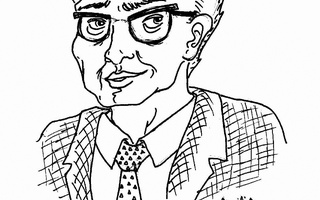Harvard economists learned Wednesday that, once again, their department had been passed over in the awarding of the coveted Nobel Prize.
Meanwhile, Ronald Coase, whose theories have become a mainstay of economic thinking, became the thirteenth professor from the University of Chicago to win the honor.
Several members of Harvard's Economics Department-which has yielded three economics Nobels, the last of which was in 1973-said Coase deserved the award, but they were not entirely enthusiastic about the social implications of his work.
"His ideas have influenced how we view firms and how economists view regulations," said Professor of Economics Eric S. Maskin '72. "He's been extremely influential, and so far as the award measures influence [on the world], it seems very appropriate in this case."
Coase, now retired, was cited for two major papers he has written on economic policy.
In 1937, Coase wrote "Nature of the Firm," a paper arguing that companies are efficient because as legal, unifying business entities, they reduce the costs of internal transactions between individuals.
In his second major paper, "The Problem of Social Cost," written in 1960, Coase argued that industries must consider economic implications when making any policy decisions.
In the same paper, he also posited that it is possible for private citizens to regulate businesses more efficiently than the government can.
Coase has said that "arguments for government regulations must take a hard look at transaction costs," Maskin said. "It's very laisse-faire."
"It can be used to justify rightwing policies if one believes that costs of private citizens aren't more than costs of government [in affecting industry]," Maskin said. "However, Coase never suggested that it's [always] as cheap for private citizens to support change in business."
Wells Professor of Political Economy Jerry R. Green said, "His work raised some interesting questions early on-it hasn't necessarily answered them."
Instructor of Economics David M. Cutler said that Coase's views are "many things that economists take for granted now."
Read more in News
Harvard Magazine: A September samplerRecommended Articles
-
Up Close and Personal With Great EconomistsEconomic journalists must walk a fine line. Assuming they understand what they're writing about, they need to be able communicate
-
Grads Snag Economics NobelThree Harvard graduates won the Nobel prize in economics on Monday for their work using game theory to explain the
-
 The Lighthouse of Economics
The Lighthouse of Economics -
Harvard Economics Professor Oliver Hart Wins Joint Nobel PrizeEconomics professor Oliver Hart became the most recent in a long line of Harvard faculty members to earn the Nobel Prize in Economic Sciences, receiving the award in conjunction with MIT professor Bengt Holmström “for their contributions to contract theory."
-
In University Hall, Harvard Celebrates Nobel Prize Winner Oliver HartClinking champagne glasses reverberated around University Hall’s Faculty Room as Economics professor Oliver Hart’s colleagues, friends, and family gathered Tuesday afternoon to celebrate his Nobel Prize in Economic Sciences.













